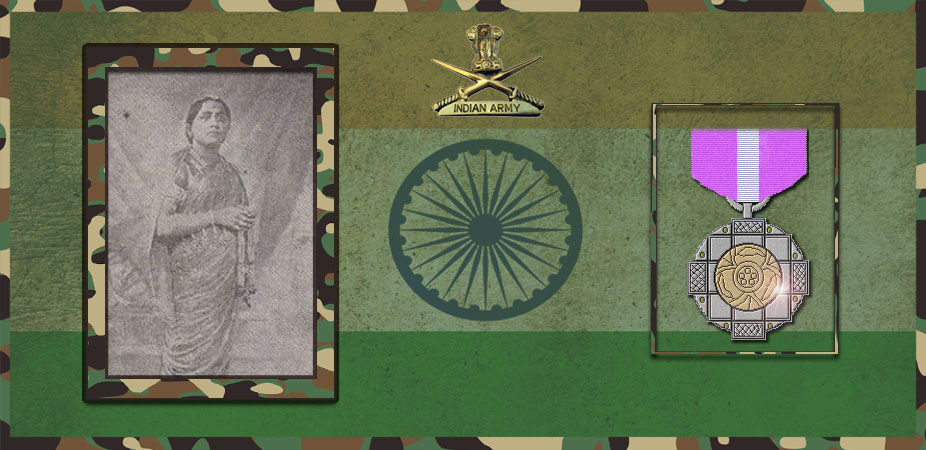Let's salute to our Indian Army together, We are proud to be Indian.
Let's salute to our Indian Army together, We are proud to be Indian.

Narayan Shripad Rajhans, better known as Bal Gandharva (26 June 1888 – 15 July 1967), was one of the greatest Marathi singers and stage actors. He was famous for his roles in female characters in Marathi plays, since women were not allowed to act on stage during his time.
Bal Gandharva got his name after a performance in Pune as an aspiring singer. Lokmanya Tilak, the great freedom fighter and the grand old man of the Indian independence movement was in the audience, and after the performance, reportedly patted Rajhans on the back and said that Narayan was a “Bal Gandharva” which means “Young Gandharva”.
Narayan Shripad Rajhans was born to Shripad Rajhans and his wife Annapurna in Deshastha Brahmin family at the Nagthane village in Palus taluka of Satara district then ( now Sangli district) in Maharashtra, India. Bal Gandharva’s first wife, Lakshmibai Narayanrao Rajhans, died in 1940. Bal Gandharva married his leading stage actress, Gohar Karnataki in 1951. Gohar died in 1964, three years before Bal Gandharva died.
Narayan Rajhans was born in an ordinary family. He started his singing career at a very young age singing bhajans. Shahu Maharaj of Kolhapur noticed him and was important in getting young Narayanrao’s theatre career off the ground. Shahu Maharaj helped him to get treatment on hearing problems at the Miraj Hospital. Shahu Maharaj also introduced him to Kirloskar Mandali, the premier Marathi Musical theatre company of that era.
He started his career with Kirloskar Natak Mandali in 1905. The company was run by Mujumdar and Nanasaheb Joglekar. After Joglekar’s death in 1911, there was discontent about Mujumdar’s dictatorial and manipulative style. Bal Gandharva, Ganesh Govind (‘Ganpatrao’) Bodas and Govindrao Tembe left the company in 1913 to form Gandharva Sangeet Mandali. Bal Gandharva became the sole owner of the debt ridden company in 1921. The debt was paid off in seven years’ time. However, Narayanrao, dissolved the company when it again accumulated debt over the next 6–7 years. At that time. Bal Gandharva signed a contract with Prabhat Film Company to make six films. However, the contract came to an end after just one film Dharmatma (1935). The film was a major departure for Bal Gandharva in the sense that he played the male role of Sant Eknath.
Bal Gandharva revived his drama company in 1937. With Narayanrao increasingly ill at ease in female roles owing to his advancing years, the company looked for an actress to play female roles and found Gohar Karnataki in April 1938. Bal Gandharva soon formed an intimate relationship with Gohar Karnataki, also known as Gauhar Bai, that scandalized traditional Maharashtrian society at that time. His brother Bapurao Rajhans left the company to protest against Gohar’s entry in Gandharva Sangeet Mandali and Bal Gandharva’s life, when it became clear that Gohar would have a major say in the company’s stewardship.
Bal Gandharva acted in 25 classic Marathi plays and played a big part in making Sangeet Natak (musicals) and Natya Sangeet (the music in those musicals) popular among common masses. He was a disciple of Bhaskarbuwa Bakhale. Bakhale scored music for his drama Swayamwar. Govindrao Tembe scored music for Manapman. In later years, Bal Gandharva’s composer of choice was Master Krishnarao (Krishna Phulambrikar).
The songs rendered by him are regarded as classics of Marathi Natya Sangeet and his singing style is greatly appreciated by Marathi critics and audiences. Marathi stage was facing difficult times after the death of Bhaurao Kolhatkar in 1901. Bal Gandharva revived it. His famous contemporaries include Keshavrao Bhosale (known as “Sangeet-Surya”) and Deenanath Mangeshkar.
He acted in plays written by Annasaheb Kirloskar, Govind Ballal Deval, Shripad Krushna Kolhatkar, Krushnaji Prabhakar Khadilkar, Ram Ganesh Gadkari, Vasant Shantaram Desai.
Bal Gandharva died in 1967.